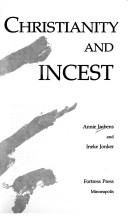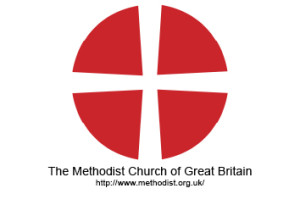 Recent information, shared on the Victims of Michael Reid website, reveals the fact that marriages at Peniel/Trinity Brentwood were often in the past arranged by the then leader, Michael Reid and his late wife, Ruth. According to the comments on the blog, single women were urged to consider only men who were members of the church or they should remain single. Looking beyond the community for a partner was not tolerated. Another blog post by someone, evidently ‘in the know’, has set out a long list of all the leaders and trustees, showing how they are mostly connected by marriage to each other or through the marriages of their children. Even though the memory of Michael Reid, the former discredited leader, is something that many current members would want to forget, it seems that his relatives still loom large in the blood lines of the current membership. David Coleman, Dan Van Enkevort and Mark and Melvyn Cooper (all current trustees) are all related by marriage to Michael Reid. Colin Clemison , Jonathan Cope ( both in the leadership team) and John Shelton (trustee) are linked to Peter Linnecar, the current pastor, also through ties of marriage. No doubt if the children of these marriages stay in the church then the church will become literally one big family where everyone is related to everyone else by blood.
Recent information, shared on the Victims of Michael Reid website, reveals the fact that marriages at Peniel/Trinity Brentwood were often in the past arranged by the then leader, Michael Reid and his late wife, Ruth. According to the comments on the blog, single women were urged to consider only men who were members of the church or they should remain single. Looking beyond the community for a partner was not tolerated. Another blog post by someone, evidently ‘in the know’, has set out a long list of all the leaders and trustees, showing how they are mostly connected by marriage to each other or through the marriages of their children. Even though the memory of Michael Reid, the former discredited leader, is something that many current members would want to forget, it seems that his relatives still loom large in the blood lines of the current membership. David Coleman, Dan Van Enkevort and Mark and Melvyn Cooper (all current trustees) are all related by marriage to Michael Reid. Colin Clemison , Jonathan Cope ( both in the leadership team) and John Shelton (trustee) are linked to Peter Linnecar, the current pastor, also through ties of marriage. No doubt if the children of these marriages stay in the church then the church will become literally one big family where everyone is related to everyone else by blood.
I record these links within the church because ties of this kind will naturally create massive distortions in the dynamics of the life of a congregation. How does one join a church when the leading members have not only been there for most of their lives, but are also linked to one another by blood and marriage? The privileged core members will not easily surrender their position of power and influence to new ideas and people. Perhaps when we consider how much has been sacrificed by these individuals to attain their positions of status within the organisation, we can sympathise with their resistance to any kind of sharing of their power with newcomers.
The members of Trinity Brentwood that I have named above, along with many others, have handed over almost everything they have to be part of a fantasy created by the arch-magician and weaver of dreams known as Michael Reid. In order to access what he seemed to be offering, namely security, protection, access to financial and social status, the individuals signed up willingly to Michael’s promises. After thirty years of convincing themselves that they are indeed living in the dream, they have now probably lost the ability to know whether they have found what they sought or not. Having allowed themselves and their families to become immersed totally in the organisation through their marriages and close friendships, they are unlikely to have an objective perspective on the church. The experience of never having attended another church for most or all of their lives will mean that they have nothing to compare it with in their minds. They will take it for granted, for example, that their church is disliked intensely by the community around it and is constantly fighting lawsuits against ex-members and an ex-leader. That has been the norm for church life at Trinity Brentwood for a long time. The members know nothing else. I am sure that the appointment of a Commission to investigate past wrongs is also shrugged off as just one more example of the way things are at the church. For those of us on the outside looking in, we see people who have given up a great deal for their membership, including the ability to think for themselves. An even greater sacrifice that has been made is the surrender of any possibility of growth and change in their personalities. When someone joins a cult the process of psychological growth towards maturity is put on hold the moment they walk through the door. The only change that actually happens is a gradual shaping of their personalities to fit in with the cult personality as defined by the leader. I do not know personally any of the people I have mentioned above, or indeed any member of Trinity Brentwood. But to judge from my knowledge of others who have become part of cultic groups elsewhere, the first impression they would make on me, I am certain, is to indicate an absence of any richness of personality – in other words they are one dimensional and boring.
Members of cultic groups like Trinity/Peniel are people who have surrendered the precious parts of their personality to a charismatic leader. In return for their money, their attention and devotion directed towards the leadership, they have received only unfulfilled dreams. Because these dreams have cost them so much in terms of time, effort and ideals, they cannot let them go as it would be a final abandoning of the delusions and hopes to which they still cling. When Michael and Ruth Reid insisted that members married other members, they knew what they were doing. They were consolidating their power and influence over each couple, making it almost impossible for either to escape. The husband would control the wife on behalf of the church and the wife would do the same. The Caroline Green story, the published account of a Peniel marriage, could only end one way. Caroline was prepared for the sake of her children to escape, even though she had to sacrifice her marriage and watch while her husband contracted another relationship within the tribe. That was no small sacrifice. I have ordered Caroline’s book and maybe I will have more to say when I have read it.
A last point is one I raised in my anonymous contribution to the other blog. One contributor mentioned that, as the result of the insistence of all marriages being contracted within the permission of the church, there were a number of bachelors and spinsters in the congregation. I commented that, as the result of the system of arranged marriages, there were probably an equal number of sad and unhappy partners in the marriages that were ‘convenience’ relationships. I have no means of knowing whether my suspicion is actually justified. I cannot help but wonder how two people coming together in a cultic controlled environment can grow together in mutual wisdom and understanding. Michael and Ruth knew that the husbands and wives they had ‘arranged’ would check each other from having disloyal thoughts about Peniel. They did not care that, at the same time, they would also prevent each other from any kind of spiritual growth which was not under the control of the cult. I cannot imagine that any of the marriages organised in this way were models of depth, excitement or unexpectedness. In other words, as I suggested above, many of the marriages would probably show signs of boredom and shallowness.
I am grateful to the anonymous bloggers on the other blog for setting out this aspect of the dynamics of a cultic church in terms of who is married to whom. My instinct about what would constitute a happy, fulfilling and successful marriage does not suggest that good marriages are very common in this church in Brentwood. To marry in such an environment will seldom create the result that the Anglican marriage service tries to describe in the following words: ‘Marriage is given (that) each member of the family … may find strength, companionship and comfort, and grow to maturity in love.’ Maturity will always be in short supply in places where individuals hand over their ability to make decisions to a leader who is beyond questioning and challenge.







